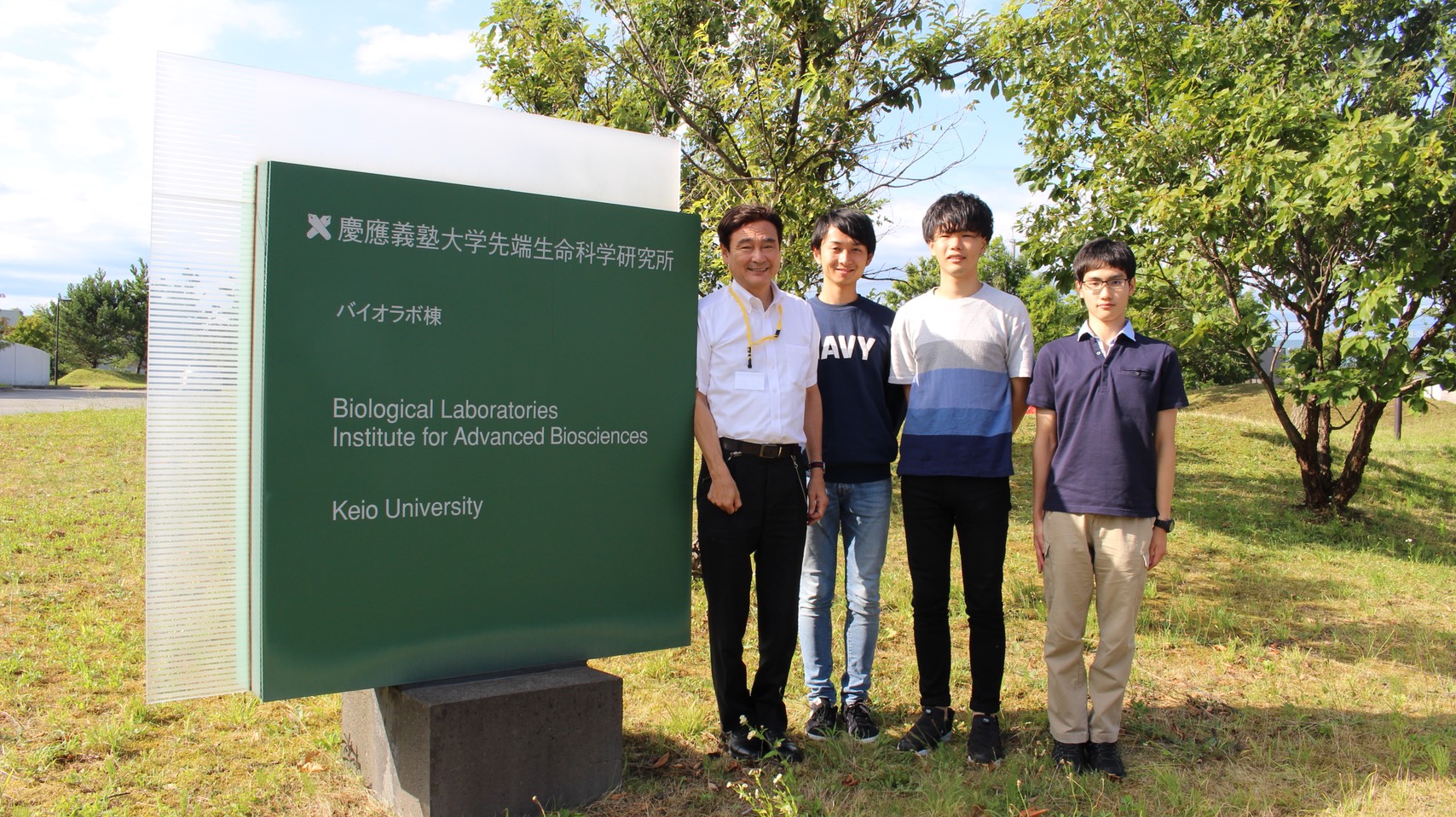An Institute is in The World Spotlight
Unlike many other countries, the knowledge industry in Japan is densely based in the metropolitan area. Meanwhile, there is a research institute attracting worldwide attention in the field of IT and biotechnology despite its geographical disadvantage; being located 500 km away from Tokyo.
The Institute for Advanced Biosciences (IAB) of Keio University locates itself in Tsuruoka, Yamagata Prefecture in Tohoku. In Tsuruoka, you can enjoy beautiful nature and tradition in the Shonai Plain, a large field that is famous for rice production. The IAB and various relevant facilities stand in the field. This group of facilities is known as the Science Park.
The cooperation of Tsuruoka City such as provision of a room and maintenance of the facilities allowed the venture companies originated from the IAB to perform advanced experiment. One of them, Spiber, has succeeded in realizing a mass production of artificial spider’s thread for the first time in the world. It widens the variety of thread’s texture and is expected to replace petroleum goods.

While traditional research method calls for researchers to set up a hypothesis before examining the results, the IAB undertakes research in the opposite way; they establish theories after analyzing data. A good example of the institute’s success is its leading edge research on Metabolomic analysis.
It is expected that the technology will allow us to identify the specific substances that cause diseases such as cancer or depression through analyzing a vast amount of Metabolome data of one’s cells and comparing them with that of healthy individuals.
The institute aims to develop high-throughput comprehensive analysis to seek out the initial symptoms of cancer, which if utilized, will be exceedingly simplified and less stressful on a patient’s body compared to current methods of examination.
The method will be not only for medicine and health but also applied in the fields more close to daily life such as for environmental and food production. This has not been realized yet but in the near future, we will be surrounded by this technology.
However, why does this innovative research keep stemming from the provincial town? Masaru Tomita, who is the director-general of the institute, states, “When starting something, you have to do from zero.” This laboratory marked its 18th anniversary in 2018, but he says that there used to be a lot of difficulties in the beginning when he was assigned to the position. Until now, he faced serious arguments against carrying out the new-fashioned research in rural area.
However, Dr. Tomita claims that new ideas – especially in the field of science – are likely to be found in a place full of nature. “The important thing is to look ahead to the further side and create, not to use the existing knowledge or methods.” It is an ongoing attempt to renovate the image of the province into that of an attractive one for younger generations.
Dr. Tomita also attaches great importance to forming an alliance with the local community. For example, the research institute welcomes the people who want to visit there, and the local high school students are employed as student research assistants and engage in the research almost every day.
Recently, the institute started promoting the cooperation of high schools and universities. The professional researchers help the research activity of high school students with careful guidance. Some revolutionary research results are released from the research activity of the institute as a whole.
Thus, a cycle is created where those who used to be employed as a student assistant or student intern becomes a member of the institute, and in return, they themselves help the research of high school students. Thanks to many attempts, the institute has become the pride of Tsuruoka City.
“If you can make a concerted effort, whatever it is, you can offer a delightful surprise to people.” When he was an undergraduate student, fascinated by the potential of programming, Dr. Tomita created the world’s first software program which made it possible to write Chinese characters on personal computers.
His words show his stance to welcome adventurous and innovative ideas. The motto of the institute, “Don’t be afraid of taking risks. Just keep going.”, might be the reason why it attracts attention globally.
Written by Masaki Sako, Yusuke Kazamaki
Edited by Takeru Suzuki


